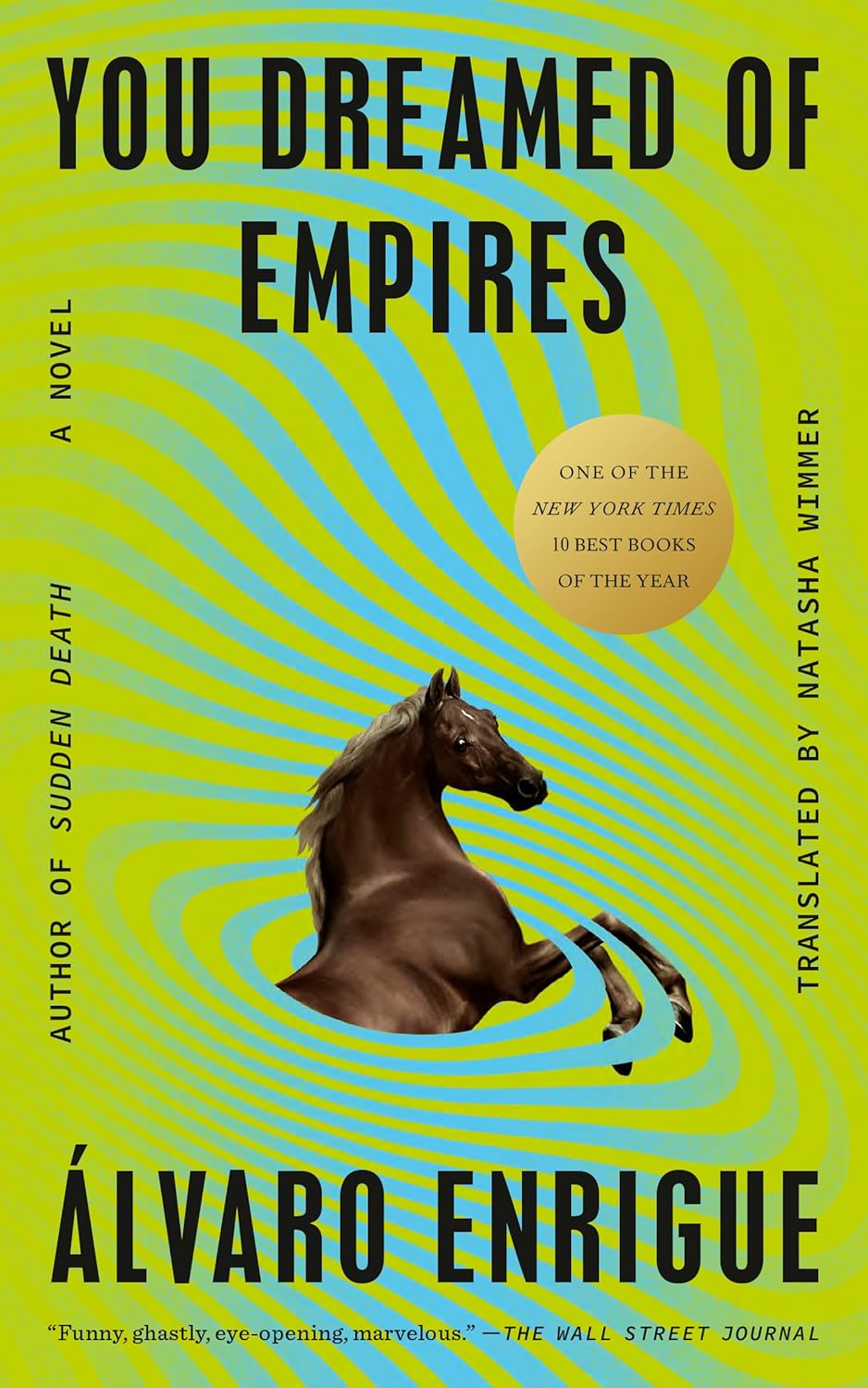
You Dreamed of Empires
III After the Nap
by Álvaro EnrigueThe chapter opens with the cihuacoatl, Tilipotonqui, navigating the chaotic aftermath of political decisions made by Emperor Moctezuma, particularly regarding the arrival of the Caxtilteca (Spanish conquistadors). The empire is beset by crises: venison shortages due to Otomí warriors disrupting hunts, a Texcoca civil war affecting lake trade, and the resurgence of the Quetzalcoatl cult. Beneath these surface issues pulses a deeper tension—Moctezuma’s waning trust in Tilipotonqui and rumors of rebellion. The emperor’s isolationist tendencies, replacing officials with loyalists, have crippled governance, leaving Tilipotonqui to manage incompetence and unrest. Meanwhile, the Council convenes mysteriously, summoned by Tilipotonqui’s own son, Tlacaelel, signaling a shift in power dynamics. The cihuacoatl grapples with the implications, suspecting his role is being undermined as the empire teeters on the brink.
Moctezuma’s erratic behavior—hallucinogen use, paranoia, and detachment—contrasts with his past brilliance. Flashbacks reveal his obsession with the Caxtilteca’s “cahuayos” (horses), which he views as key to imperial dominance. His sister, Atotoxili, critiques his shortsightedness, warning that internal strife (rebellions in Texcoco, Tlaxcala’s defiance) outweighs the newcomers’ threat. Yet Moctezuma, swayed by priests and visions, insists on diplomacy. A pivotal meeting with the Majordomo of the House of Darkness underscores his tactical genius but also his growing reliance on manipulation—spreading myths of Quetzalcoatl’s return to control the narrative. Tilipotonqui, though skeptical, aligns with Moctezuma’s plans, only to later regret enabling the Caxtilteca’s advance, which destabilizes the empire further.
Parallel to political drama, cultural tensions emerge. The Spanish, led by Cortés, oscillate between awe and brutality. Cortés, insecure about his impending meeting with Moctezuma, asserts dominance by raping Malinalli (La Malinche), his translator, while dreaming of Christianizing the city. Meanwhile, Jazmín Caldera, a Spanish captain disguised as a Colhua noble, explores Tenochtitlan’s market and temple complex, marveling at its order but sensing impending doom. The Mexica, too, are divided: Cuauhtemoc, Moctezuma’s son-in-law, prepares for war, while Atotoxili negotiates with Malinalli, offering protection in exchange for intelligence. The chapter highlights the collision of worldviews—Spanish pragmatism versus Mexica spirituality—and the personal betrayals that mirror larger conflicts.
The chapter crescendos with ritual and foreshadowing. Moctezuma, high on mushrooms, consults the god Huitzilopochtli in the temple, receiving cryptic advice about “many possible futures.” Simultaneously, Cortés and his men desecrate the temple, vomiting at the sight of sacrifices, their hubris contrasting with Aguilar’s caution. Caldera flees the Spanish camp, symbolizing dissent within the conquistadors. As drums signal nightfall, the city’s bridges rise, trapping the Spanish—a metaphor for the empire’s closing grip on its fate. Tilipotonqui, Cuauhtemoc, and Atotoxili convene, acknowledging Moctezuma’s decline but clinging to loyalty. The chapter ends with Moctezuma’s detached murmur—“Hmm, it’s late for my bath”—underscoring his tragic blindness to the cataclysm approaching.
Themes: Power erosion, cultural dissonance, and the tension between strategy and superstition dominate the chapter, setting the stage for the empire’s downfall.
FAQs
- Why is Moctezuma obsessed with the Caxtilteca’s "cahuayos" (horses)?
- Moctezuma sees them as a military advantage to crush enemies like the Purepecha, but his fixation blinds him to the empire’s internal crises (rebellions, priestly dissent). Atotoxili warns this obsession is reckless.
- What does the "ant" metaphor mean?
- Repeated by Tilipotonqui and the Council, it references a Mexica fable about silent perseverance. Here, it hints at Moctezuma’s hidden strategies—or Tilipotonqui’s impending downfall.
- Why does Cortés rape Malinalli before reading Livy?
- It reflects his insecurity before meeting Moctezuma. Violence restores his sense of control, while Livy’s Ab Urbe Condita fuels his delusions of imperial destiny.
- What’s the significance of Jazmín Caldera disguising himself as a Colhua?
- His exploration of Tenochtitlan mirrors Spanish awe at its order, but his eventual desertion foreshadows betrayal within Cortés’s ranks.
- Why does Moctezuma consult Huitzilopochtli while high on mushrooms?
- His drug-induced visions (e.g., "many possible futures") underscore his detachment from reality, contrasting with the pragmatic Cuauhtemoc and Tilipotonqui.
Quotes
- On Moctezuma’s Decline:
- "The emperor is like the ant. He doesn’t speak. And later? Later he does speak."
- — The Secretary of Maps, Boundaries, Tributes, and Other Things
- (Highlights Moctezuma’s inscrutable, erratic leadership.)
- Atotoxili’s Warning:
- "You’ve given the Caxtilteca time to ally with all your enemies while your army protected them from a distance."
- — Atotoxili to Moctezuma
- (Critiques his fatal miscalculation with the Spanish.)
- Cortés’s Brutality:
- "Just wait, son of a bitch."
- — Malinalli (in Popoloca), after Cortés rapes her
- (Foreshadows her eventual betrayal or alliance shift.)
- Cultural Dissonance:
- "A city like this wasn’t built by being nice to foreigners."
- — Aguilar to Cortés
- (Warns against underestimating the Mexica’s ruthlessness.)
- Moctezuma’s Tragic Detachment:
- "Hmm, it’s late for my bath."
- — Moctezuma’s closing line
- (Symbolizes his denial as the empire collapses around him.)
